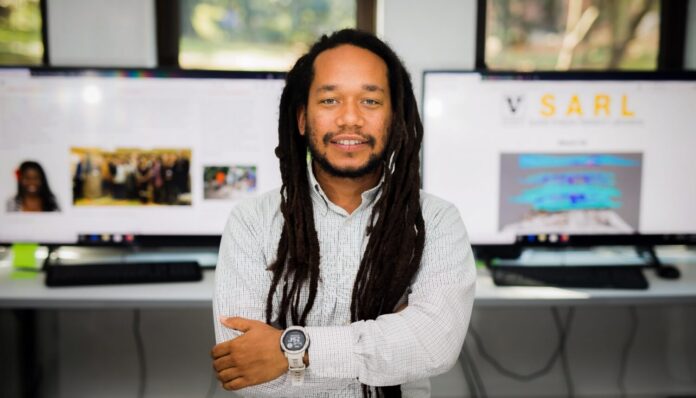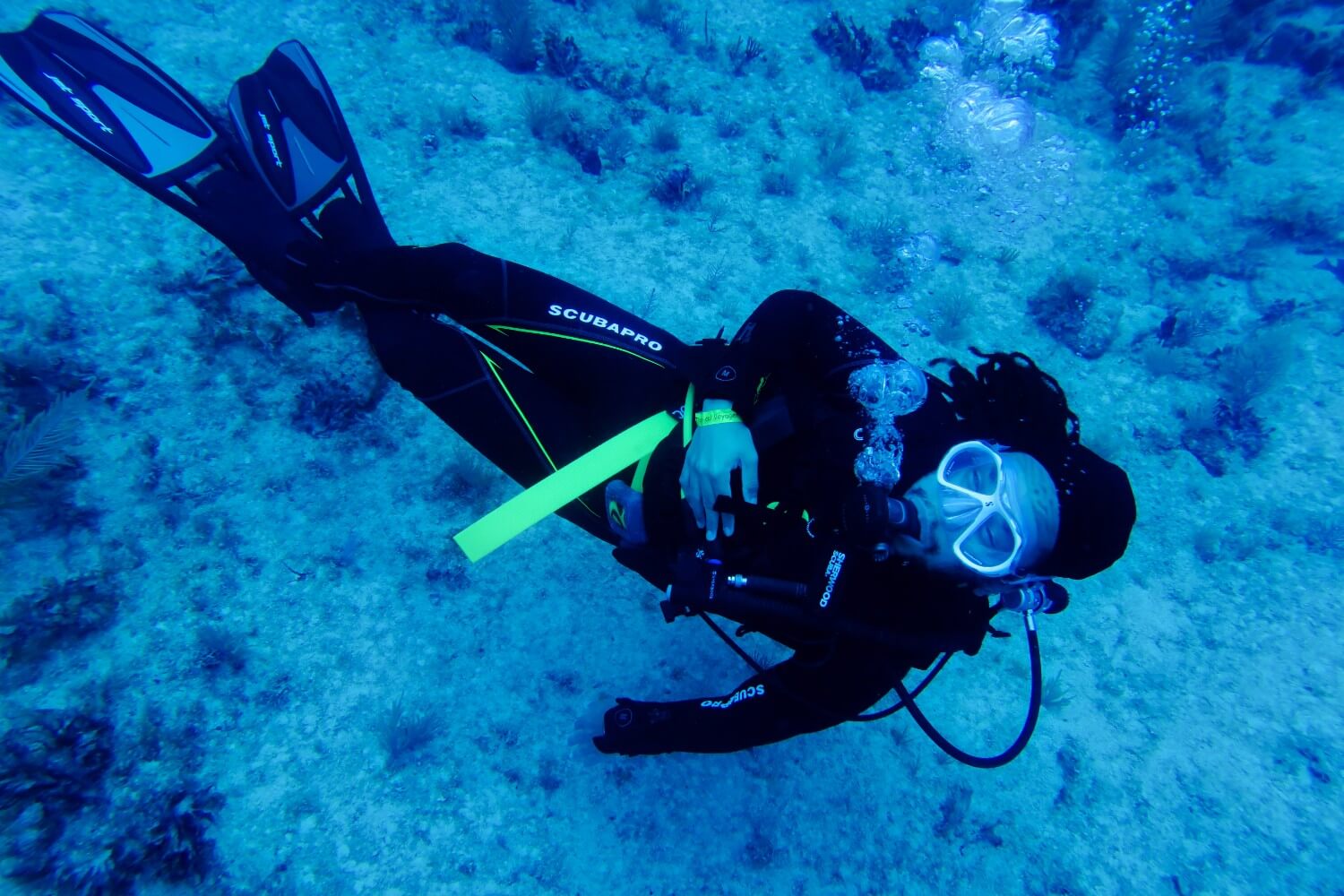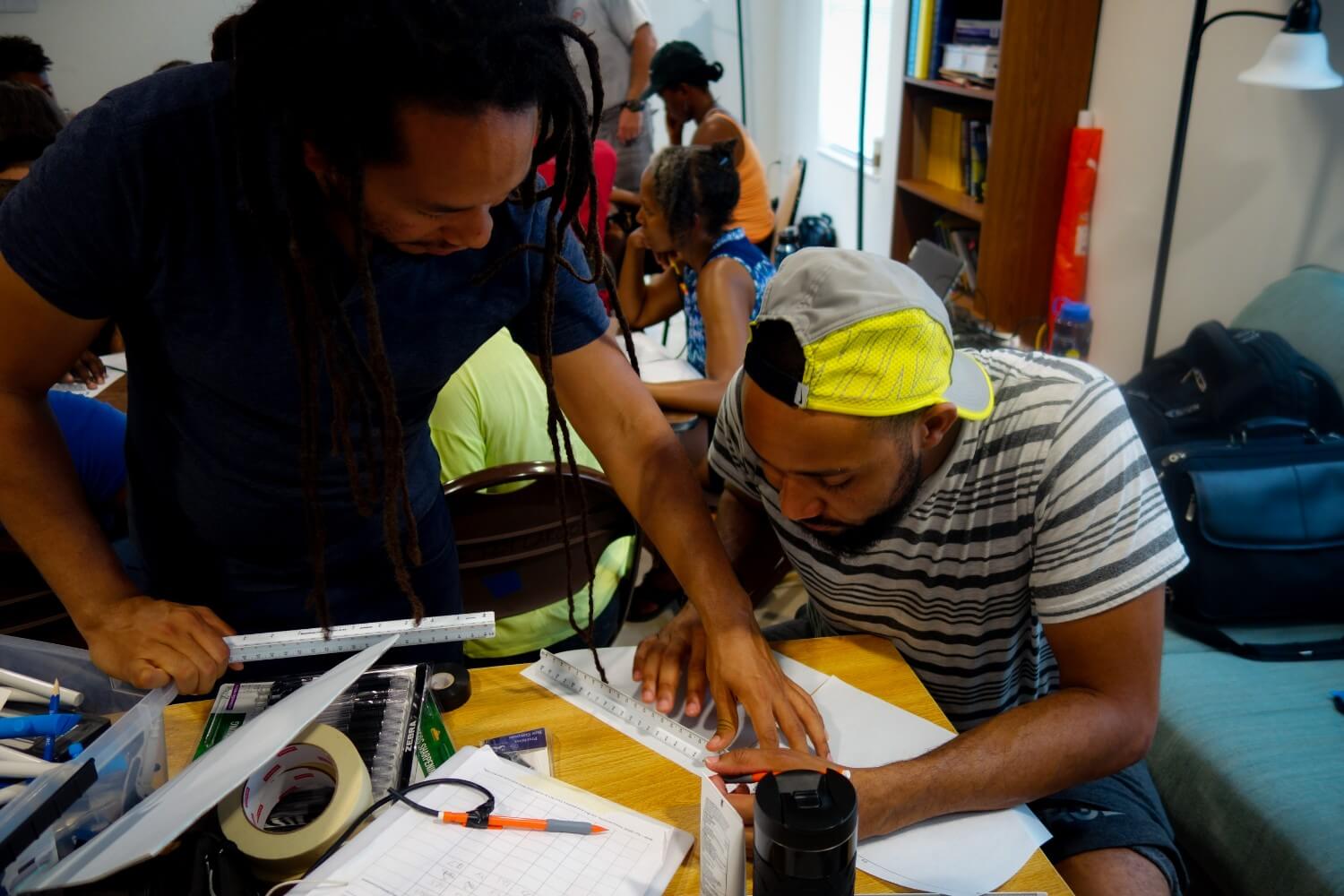
Seventy years after the graduation of Occidental’s first Black students, Dr. Janet Stafford ’52, George F. Ellison ’52 and Barbara Bowman Wright ’52, the college welcomed Justin Dunnavant as the Stafford Ellison Wright Scholar in Residence. Dunnavant is an assistant professor of archeology at UCLA and co-founder of the Society of Black Archeologists. He conducts research with a wide range of questions in a wide range of locations — including the bottom of the ocean — all united by his essential project of studying Africa and the African Diaspora of the past 500 years through archeology.

Erica Ball, chair of the Black Studies department and Stafford Ellison Wright Committee Member, said that every year the committee aims to find someone who is on the cutting edge of their field and can get students excited about the expansive nature of Black Studies. According to Ball, Dunnavant is able to access the same history that she studies through literature and theory in a way most people would not consider, showcasing the diversity of disciplines that Black Studies encompasses.
“We can look for it in different places,” Ball said. “We can look for it in print culture if you’re coming from the humanities and studying literary works, we can find it at the bottom of the ocean if you’re doing the work that Dunnavant is doing.”
According to Dunnavant, his current projects center around finding Maroon communities — communities of self-freed, formerly enslaved people and the subject of one of his public lectures at Occidental — and around the connections between the environment, ecology and slavery, from the past through to the present day.
Dunnavant said he first got the idea for his current project in St. Croix while visiting the island and seeing the current environmental problems.
“I got interested in understanding the colonial roots and origins of a lot of these issues,” Dunnavant said.
According to Dunnavant, people accept the environmental decimation of the Caribbean islands to be natural, but the scale and rate of this destruction have been magnified by colonialism. Colonists’ historic clearcutting of islands for plantation agriculture and massive coral mining of the islands greatly reduced natural buffers, heightening the impact of storms and leading to other environmental problems down the road.
Dunnavant said he is working with a multidisciplinary team including ecologists, coral scientists and marine scientists.
“We’re looking at evidences of pollutants in the soils,” Dunnavant said. “Those could be heavy metals that are coming from rum production. We’re also looking for evidence of erosion. That usually comes from deforestation and heavy rains, which leads to increased erosion, which leads to reducing shorelines.”
According to Dunnavant, his goal is not merely discovering and documenting, but using his work to create positive change in real space. Around St. Croix and other areas he studies, Dunnavant said he engages in coral restoration projects on top of his excavations and archeological work.
“We’re trying to tie it back into conservation work,” Dunnavant said. “Because we realize all the environmental damage that has happened as a result of slavery and colonialism, we want to actually be a part of the solution.”
Dunnavant said he seeks to uncover stories, history and heritage — looking beyond the found artifact as a piece of data.
“When I talk to folks about archeology, they often want to know, ‘What’s the biggest find?’ or, ‘What’s the most interesting technology you’re using?’” Dunnavant said. “But I tell them to us, to me, the most compelling aspect of all of this is locating these objects so that we can tell these stories again.”
With archeological work, Dunnavant said he is able to access and bring back elements of unwritten history that would remain forgotten if not physically unearthed.
Dunnavant said that one such find, seemingly mundane — a little glass ball like a marble — in fact, opened up a past world of St. Croix to him and his team. The ball, it turned out, was the stopper of an old soda bottle, which local children would break out to play marbles.
“It opened up this whole conversation around games, and memories around childhood, all from this little glass marble that we located on an archeology site,” Dunnavant said. “That got my colleague thinking about well, what kind of games did people play during slavery?”
Dunnavant also focuses on training a new generation to be able to continue this work.
“In all the work that I do, I always say my goal is to become irrelevant and to train my replacement,” Dunnavant said.
Dunnavant works closely with the Caribbean Center for Boys and Girls, leading middle and high schoolers in a week-long archeological training every summer. He also brings students from Historically Black Colleges and Universities (HBCUs) into his research and trains scuba divers to do maritime archeological work.
Gretchen North, a biology professor at Occidental, hosted a guest lecture from Dunnavant in the First Year Seminar (FYS) she co-teaches on the role of science in society. North said that later that week several students brought up how much they had enjoyed Dunnavant’s lecture and were most impressed by the way Dunnavant works interdisciplinary sciences into a broader context of significance. She said her students were inspired by Dunnavant’s framing of sciences, using chemistry, physics and biology as tools to discover and re-enliven human stories and heritage.

In Dunnavant’s final event at Occidental, a conversation with his colleague Dr. ChenziRa Davis Kahina, the discussion centered on the past, present and future of Caribbean and Africana studies, history and heritage. Both scholars agreed that intellectual work should remain rooted in life, actively bettering the communities and spaces studied.
Gene Grigsby ’66, one of two Black students admitted to Occidental in 1962 and one of the founders of the Stafford Ellison Wright Fund, said the college was one of the most difficult, unhappy social environments he had ever been in. Grigsby said he did not give up on the school. Instead, he said he took an active part in bettering Occidental, which he credits with giving him the academic footing to compete with anybody. According to Grigsby, improving the experience of Black students on campus and acknowledging the Black students who had long been attending the college were the original inspirations behind the Stafford Ellison Wright Fund, named for the first three Black graduates of Occidental.
Grigsby said he believes that the Scholar in Residence program is achieving the original goals of the Stafford Ellison Wright Fund and shows that the college is moving in the right direction.
“The things that made Oxy a terrible social situation for me are not exactly the same for minority students today as it was 50 years ago,” Grigsby said. “So I’m proud to be an Oxy graduate. The college has continued to grow and learn.”
Dunnavant’s stated goals for his work and Grigsby’s stated goals for Occidental focus on telling stories that would otherwise go forgotten, as the Stafford Ellison Wright Fund is meant to — in action, as in name.
![]()






























